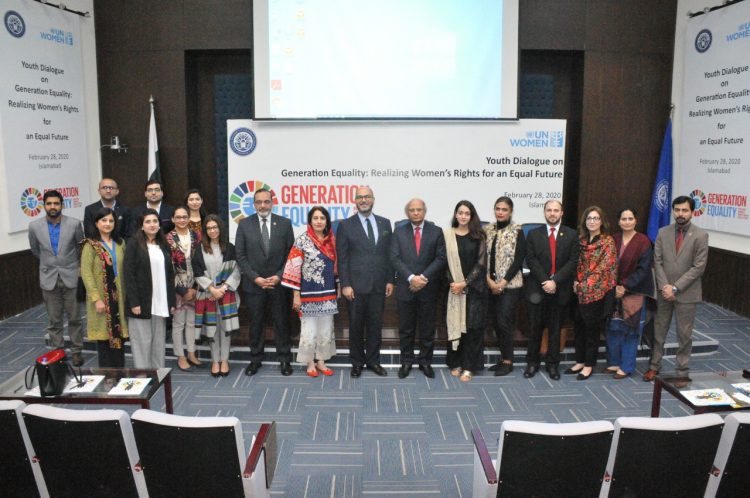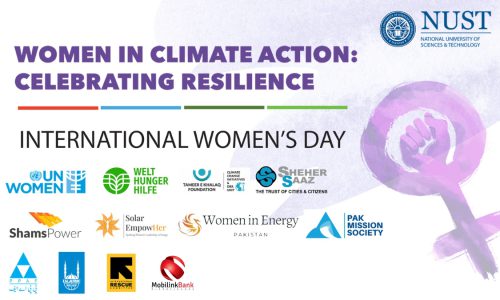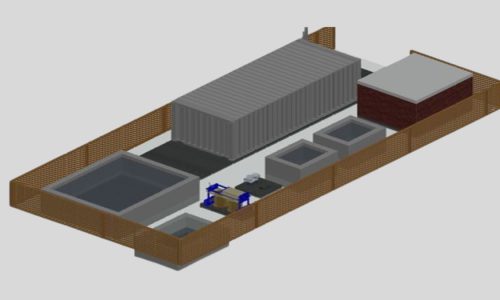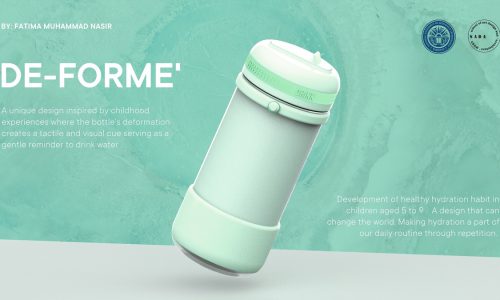A seminar on Generation Equality, the 5th goal of the UN Sustainable Development Goals, was held at the National University of Sciences and Technology. The seminar’s focus was on the year 2020 being the year of gender equality, the year of enabling women to influence the decisions about their future, and how empowering women can contribute in social development initiatives, and policy-making generates benefits that affect not only women and their communities, but also the society as a whole.
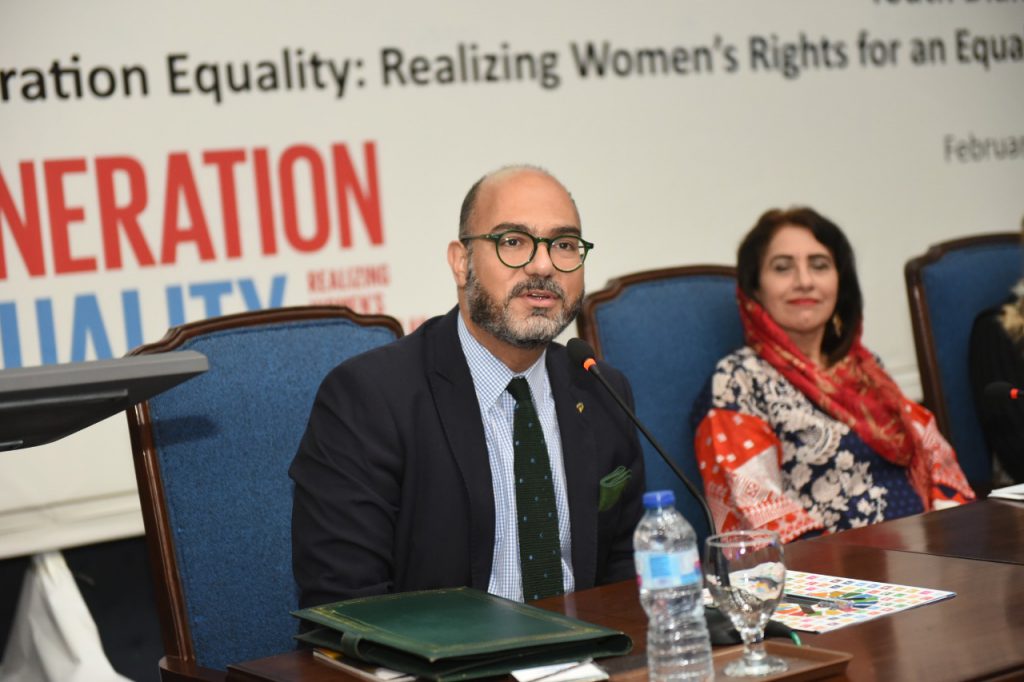
Pakistan currently has 64% of its population under the age of 30 years who has a vision of revolutionizing and modernizing the methods of development in order to produce substantial results, far sighted enough to break the shackles of the societal norms based on patriarchy and working towards achieving equality and thinking out of the-box solutions through the lens of innovation.
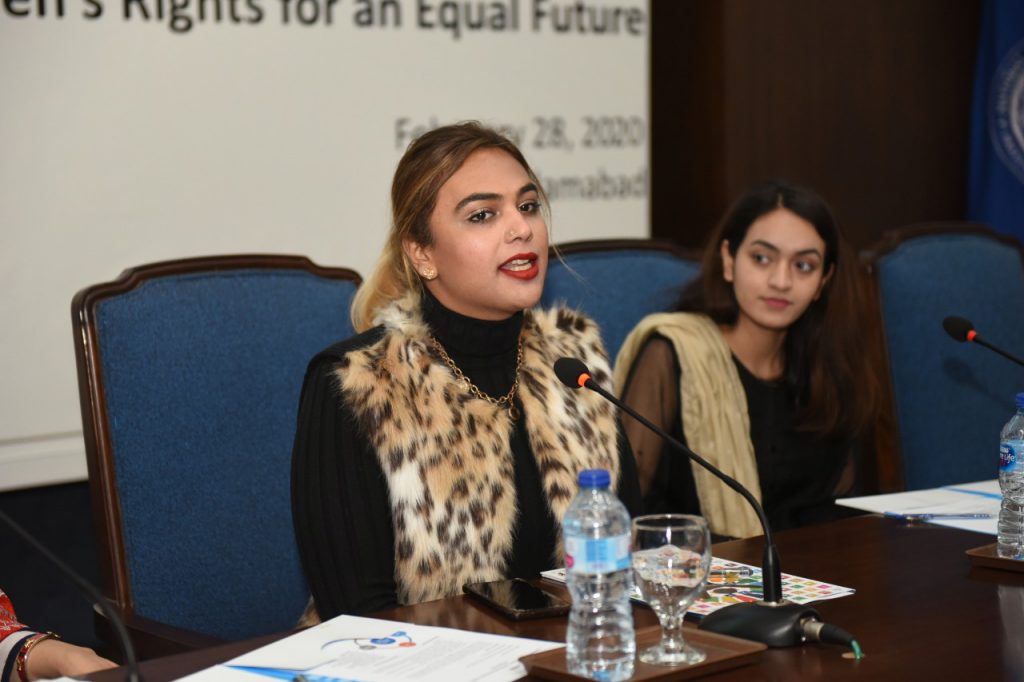 A number of notable panelists graced the event such as, Mr. Mohammad Naciri the Regional Director of UN Women for Asia and the Pacific has extensive experience in the region and in gender and development issues in the Middle East, Ms. Uzma Kardar, a Pakistani Politician who is serving as a member of the Provincial Assembly who has moved women protection bills in the parliament , Ms. Maya Zaman, Pakistan’s first transgender designer who is making her mark and represent her community, with the release of her first luxury ready-to-wear clothing line branded as, Surkhaabi and lastly Ms. Aqsa Ajmal, an alumnus from NUST School of Art, Design and Architecture (SADA) who was selected as one of the six finalists for the Lexus Design Award from around the world for her phenomenal project titled ‘Pursewit’, a sewing machine exclusively designed for visually impaired people with low-income backgrounds.
A number of notable panelists graced the event such as, Mr. Mohammad Naciri the Regional Director of UN Women for Asia and the Pacific has extensive experience in the region and in gender and development issues in the Middle East, Ms. Uzma Kardar, a Pakistani Politician who is serving as a member of the Provincial Assembly who has moved women protection bills in the parliament , Ms. Maya Zaman, Pakistan’s first transgender designer who is making her mark and represent her community, with the release of her first luxury ready-to-wear clothing line branded as, Surkhaabi and lastly Ms. Aqsa Ajmal, an alumnus from NUST School of Art, Design and Architecture (SADA) who was selected as one of the six finalists for the Lexus Design Award from around the world for her phenomenal project titled ‘Pursewit’, a sewing machine exclusively designed for visually impaired people with low-income backgrounds.
The seminar discussed the following:
- Regional taboos hampering the generation equality and what the society needs to do in order to overcome these taboos
- The steps needed to end Child Marriages as Pakistan’s current law sets the legal marriage age at 16 for girls and 18 for boys, setting different, and thereby discriminatory, marriage ages for girls and boys.
- Basic rights attained by the transgender community including the ability to choose their own gender after passage of the Transgender Persons (Protection of Rights) Bill 2017 by the parliament.
- Entrepreneurial success of transgender and related societal factors that affect the success
The participants commended the efforts of NUST as an SDG engaged university and for not only bringing such issues to light on an international forum but also to find solutions for women to fulfill their potential in a society that is greatly influenced by gender. NUST with their SDG’s plan is embarked on a journey of advocating for those denied of equality to ensure societal welfare.
The author works at the Research Directorate (NUST) and National Science and Technology Park (NSTP) as Manager Research and Innovation Promotion and is a curator at NUST Research & Innovation Blog. She can be reached at mgr.pubpro@nust.edu.pk 

